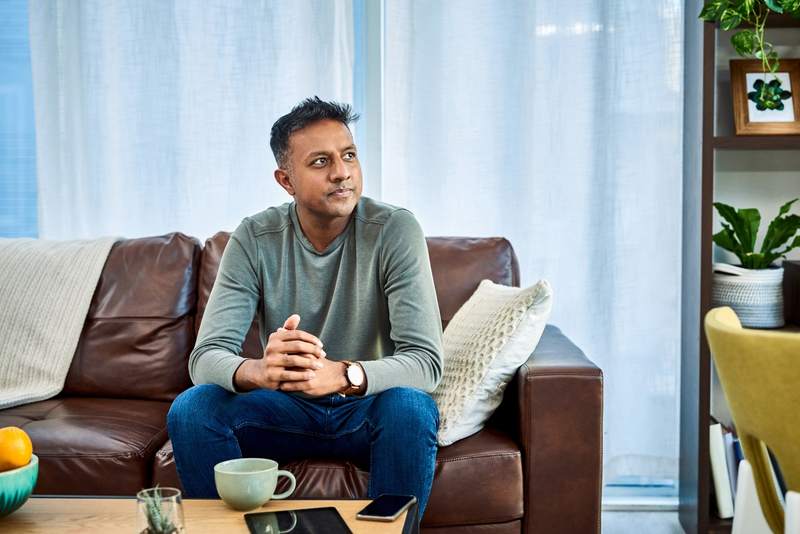Learning how mortgages work is an important part of the homebuying journey. If it’s your first time purchasing a home, you could be navigating unfamiliar terms and processes. Here are 15 common mortgage loan questions and answers to help you along the way.
1. What Is a Mortgage?
A mortgage is an agreement between a borrower and a lender that gives the borrower access to a loan to purchase a home. The money is repaid over a set period known as the mortgage term, and comes with an interest rate. That’s the cost the borrower will pay each year to take out the loan, expressed as a percentage rate.
2. What Is a Second Mortgage?
A second mortgage, aka a junior lien, is a loan that’s also secured by the borrower’s home. What that means: If the borrower can no longer pay their mortgages and the property is sold, then this type of loan is paid off second.
Because lenders for second mortgages risk not getting the full amount of the loan back, a second mortgage tends to come with higher interest rates.
The two major types of second mortgages are home equity loans — which provide a lump-sum payment, like a traditional mortgage — and home equity lines of credit, which function similar to a credit card. Both types are based on the homeowner’s equity, which is the difference between their home’s value and what they owe on their mortgage.
3. How Do I Know Which Mortgage Is Right for Me?
The type of mortgage that’s right for you will depend on your financial situation and priorities.
Here are common loan options for qualified borrowers:
- Conventional loans. These don’t fall under a specific government program. They tend to cost less than loans backed by the Federal Housing Administration, but can be more difficult to qualify for.
- FHA loans. Mortgages insured by the Federal Housing Administration allow for a small down payment and have lower credit score requirements.
- VA loans. You must be an eligible service member, veteran, or surviving spouse to get a loan backed by the Department of Veterans Affairs.
- USDA loans. This mortgage program by the Department of Agriculture is intended for low-income borrowers buying homes in eligible rural areas.
Another important decision to make is choosing between a fixed-rate vs. adjustable-rate mortgage. A fixed-rate mortgage has an interest rate that’s set for the life of the loan, whereas the interest rate on an ARM can fluctuate periodically after an initial period with a fixed rate, which lasts from six months to 10 years.
ARMs usually start off with a lower interest rate compared with fixed-rate mortgages, but the monthly payments can increase over the life of the loan. Getting an ARM could make sense if you plan to sell your home before the initial period ends, and want to take advantage of the lower interest rate. But if you value stability, getting a fixed-rate mortgage could provide peace of mind.
4. How Much Mortgage Can I Afford?
To avoid struggling with your monthly mortgage payments, buy a home within your means. Here are some tips to help figure out how much house you can afford:
- Decide on your down payment. A down payment is a lump sum paid upfront by the buyer, expressed as a percentage of the home’s purchase price. Saving up for a larger down payment helps you reduce the overall cost of borrowing money, and can result in a lower interest rate on your mortgage.
- Factor in additional upfront costs. Some buyers might be caught off guard when they find out that closing costs, which are fees associated with the homebuying process, generally range from 2% to 5% of the home’s purchase price.
- Consider how much you can afford to pay each month. According to the 28% rule, homeowners should spend no more than 28% of their gross monthly income on their mortgage payment. And if you buy a home in a community with shared amenities, you’ll also need to factor in paying homeowners association fees on a regular basis.
- Look into mortgage rates. Your interest rate will affect the cost of your mortgage and what you can afford. The Consumer Financial Protection Bureau offers a tool to explore interest rates, which you can customize based on your situation.
5. How Much Should I Save For a Down Payment?
You’ll need a 3% down payment at minimum for a conventional loan, which is the most common type of loan. But putting more money down can pay off over time, since your down payment affects your interest rate and the total cost to borrow. So, how much down payment do you really need?
If you have a conventional loan and your down payment is less than 20%, then you’ll be required to pay for private mortgage insurance until you reach 20% equity in your home. PMI generally costs $30 to $70 per month for every $100,000 borrowed.
“Mortgage insurance premiums are much like other insurance premiums, where the cost is dependent on a number of different factors, like FICO credit score and mortgage amount,” says Kevin McMahon, who is based in Raleigh, North Carolina, and vice president of client services at Black Knight, a mortgage software, data, and analytics company.
This recurring expense adds up, so putting 20% down can help you save money on your mortgage.
6. What Is Mortgage Insurance?
Mortgage insurance is coverage that financially protects the lender if the borrower becomes unable to make their monthly payments. It’s an extra monthly expense that some borrowers must pay, depending on the mortgage.
Borrowers with a conventional loan need to pay for private mortgage insurance if they put less than 20% down. Those with FHA loans must cover mortgage insurance premiums as part of the government program. VA loans and USDA loans charge a one-time funding fee and an annual guarantee fee, respectively, instead of mortgage insurance.
Since having insurance lowers the risk of loaning money, lenders can work with borrowers who might not otherwise qualify for a mortgage.
7. How Do I Calculate My Mortgage Payment?
An online calculator can help you figure out your mortgage payment. Inputting different estimates for your loan amount allows you to compare costs and gives you an idea of what you might be able to afford. However, keep in mind that calculator results generally don’t include all the taxes, insurance premiums, and fees that you may be required to pay. Your actual payment amount will vary.
If you’re looking for an estimate only, you can get started with our mortgage calculator.
8. What Are Points on a Mortgage?
Mortgage points, aka discount points, are fees that a borrower pays upfront to the lender in exchange for a lower interest rate. While paying points will reduce the monthly payment and total interest paid, the trade-off is that it increases the borrower’s closing costs.
Each point purchased equals 1% of the loan amount. For example, 1 point on a $400,000 mortgage costs $4,000, and 2 points on that same loan cost $8,000. The amount of the resulting interest rate reduction varies depending on the loan and housing market conditions.
9. What Is Mortgage Underwriting?
Underwriting is the lender’s process of verifying information on the borrower’s income, employment, credit history, assets, debts, and property details before approving their mortgage application.
The process can look different from lender to lender, but the “four C’s” form the main components of underwriting:
- Capacity, which is the borrower’s ability to pay back the loan.
- Capital, which is the amount of cash that the borrower has readily available.
- Collateral, which refers to value of the property that’s securing the loan.The lender will order an appraisal to determine how much the home is worth.
- Credit, which helps the lender evaluate how reliable the borrower will be when it comes to repaying their loan.
10. Can I Get a Mortgage Without a Credit Score?
It’s possible to get a mortgage even if you don’t have enough of a credit history to get a credit score. However, finding a willing lender may be difficult, since the underwriting process will be more complicated. Still, there are mortgage options for people with no credit.
11. What Is a Mortgage Note?
A mortgage note is a legal document signed at closing that serves as evidence of the borrower’s formal commitment to repay the loan. The document covers:
- The loan amount.
- The interest rate on the mortgage.
- The loan term.
- Payment dates.
- The place where payments should be sent.
- The consequences of failing to make the monthly payments.
12. How Do I Get Preapproved For a Mortgage?
A preapproval letter shows how much money a lender is likely willing to loan to you. While it’s not a guarantee, getting preapproved tells real estate agents and sellers that you’ll probably be able to receive financing for a home.
Lenders have different preapproval processes. So, to get preapproved for a mortgage, look up the required documentation and request a preapproval from the lender you’re interested in working with.
You also need to decide on your timing. Preapproval letters often have an expiration date within 30 to 60 days, so you’ll want to hold off on getting one until you’re serious about shopping around for a home.
13. What’s the Difference Between Pre-Qualified and Preapproved?
Pre-qualification and preapproval are terms that people often use interchangeably, but they’re not the same thing.
Pre-qualifying for a mortgage means receiving an estimate of how much you might be able to borrow, usually based on self-reported information and a credit check. It’s a less rigorous process than preapproval, where the lender verifies your financial information and credit history in depth.
Pre-qualification can be a good step for borrowers who are trying to establish their homebuying budget and looking for a better sense of what they can borrow.
14. What Is Mortgage Refinancing?
Refinancing a mortgage involves paying off an existing home loan using money from a new loan that typically has better terms for the borrower.
Your income, expenses, home’s value, and financial priorities — as well as overall market conditions — can change over time. If you’re qualified, refinancing gives you the option to change the terms of your mortgage in response. Borrowers might refinance to get a lower interest rate, switch between mortgage products, or build equity faster, among other reasons.
15. What Questions Should I Ask My Mortgage Lender?
When you choose a mortgage lender, you’re entering a long-term professional relationship. Before making it official, you should be confident that your lender is communicative and responsive to any questions you might have. Ask about the credit requirements for the types of mortgages that the lender offers, how long it’ll take to process the loan, all the fees you can expect to pay, and more.
For a full list, check out these 15 important questions you should ask your lender.
The Bottom Line on Frequently Asked Mortgage Questions
When it comes to committing to a mortgage, there are no bad questions. It’s important that you fully understand your options as well as the process, since a home is likely the biggest purchase you’ll ever make. Get all your home loan questions answered, so you can sail on smoothly to closing.
Aly Yale contributed to the reporting of this article.






